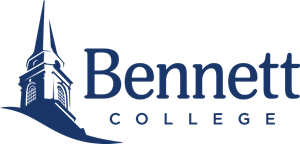Textiles, Teachers, and Troops: Greensboro, 1880-1945
Textiles, Teachers, and Troops makes available more than 175,000 digital images documenting the social and cultural development of Greensboro from Reconstruction to World War II. Photos, books, personal papers, scrapbooks, and oral histories demonstrate how the textile industry, education, and the massive World War II military presence helped Greensboro grow into one of the leading manufacturing and education centers in the Southeast.
Textiles, Teachers, and Troops is a collaborative project among seven cultural heritage institutions in Greensboro and was funded in part through a Library Services and Technology Act Grant administered by the State Library of North Carolina.
Collections included:
Pages
-
- Thesis Collection
- Theses held by the Hege Library at Guilford College.
-
- University Archives Reference Collection
- A variety of published works related to the history of what is now UNC Greensboro.
-
- University Archives Subject Files
- The University Archives Subject Files are a curated collection of newspaper clippings and other documents on a variety of topics related to the history of UNC Greensboro.
-
- University Yearbooks (UNCG University Archives)
- Yearbooks were published at UNC Greensboro between 1902 and 1993 under several names and historically included student and faculty photographs, features on student organizations, and advertisements for local businesses.
-
- Vertical Files
- These files, arranged alphabetically by name or subject, relate to miscellaneous aspects of Greensboro history.
-
- Wartime (Guilford Vertical Files)
- Various subject files documenting lif during wartime (primarily World War II) in the Greensboro area.
-
- W.V. Informer
- W.C. Informer was a publication of the Woman's College Chapter of the Committee for North Carolina, an affiliate of the Southern Conference on Human Welfare (SCHW) located at the Woman's College of the University of North Carolina in Greensboro. SCHW was at the forefront of early civil rights and social justice issues.
-
- World War I Scrapbooks
- Scrapbooks pertaining to servicemen and medical personnel of Guilford County who participated in World War I.
-
- World War II Newspapers
- This collection of newspapers published by the U.S. Army Basic Training Center #10 (BTC-10), later the Overseas Replacement Depot (ORD), documents life on an urban army base during the final years of World War II. As the largest military base within city limits in America, BTC-10/ORD was an important element in Greensboro's growth and development during and after the war. The newspaper features base and military news, coverage of dances and other social events, and advertisements for local businesses that catered to the soldiers, providing not only an important record of military history but also a glimpse into the social and cultural life of Greensboro during the period.
-
- Col. Paul R. Younts Papers
- A native of Charlotte, North Carolina, Paul Younts (1899-1971) was the longest serving commander (September 1944-March 1946) of the Army Air Forces Overseas Replacement Depot (ORD) in Greensboro during World War II. During his tenure, the ORD processed over 100,000 men, separated from service 32,200 soldiers and reassigned 32,108 others. This collection is rich in documentation that sheds light on how the ORD functioned as a military installation and how it interacted with the local community. The digitized items include statistical charts, a brief history of the ORD, and guides to processing, separating from service, and standard operating procedures. The bulk of the photos are of Younts or activities at the ORD.










